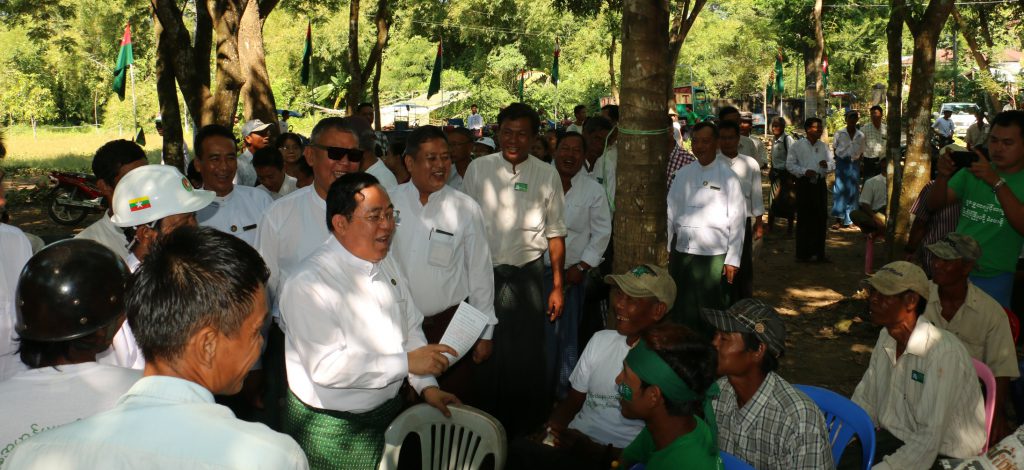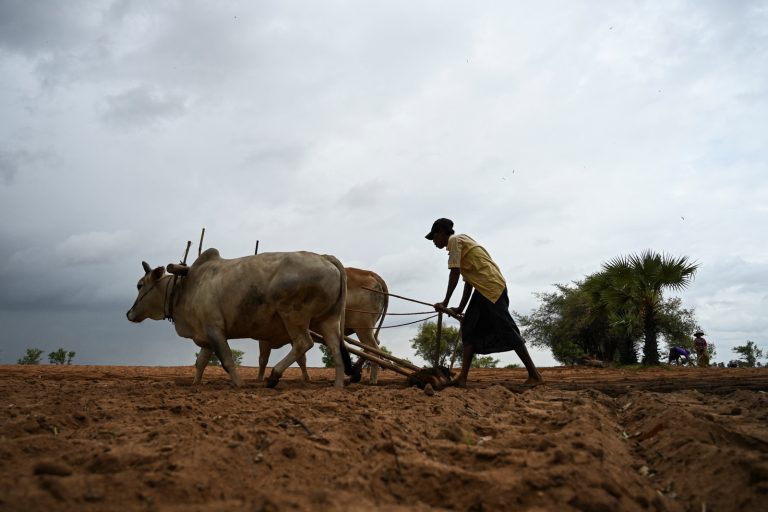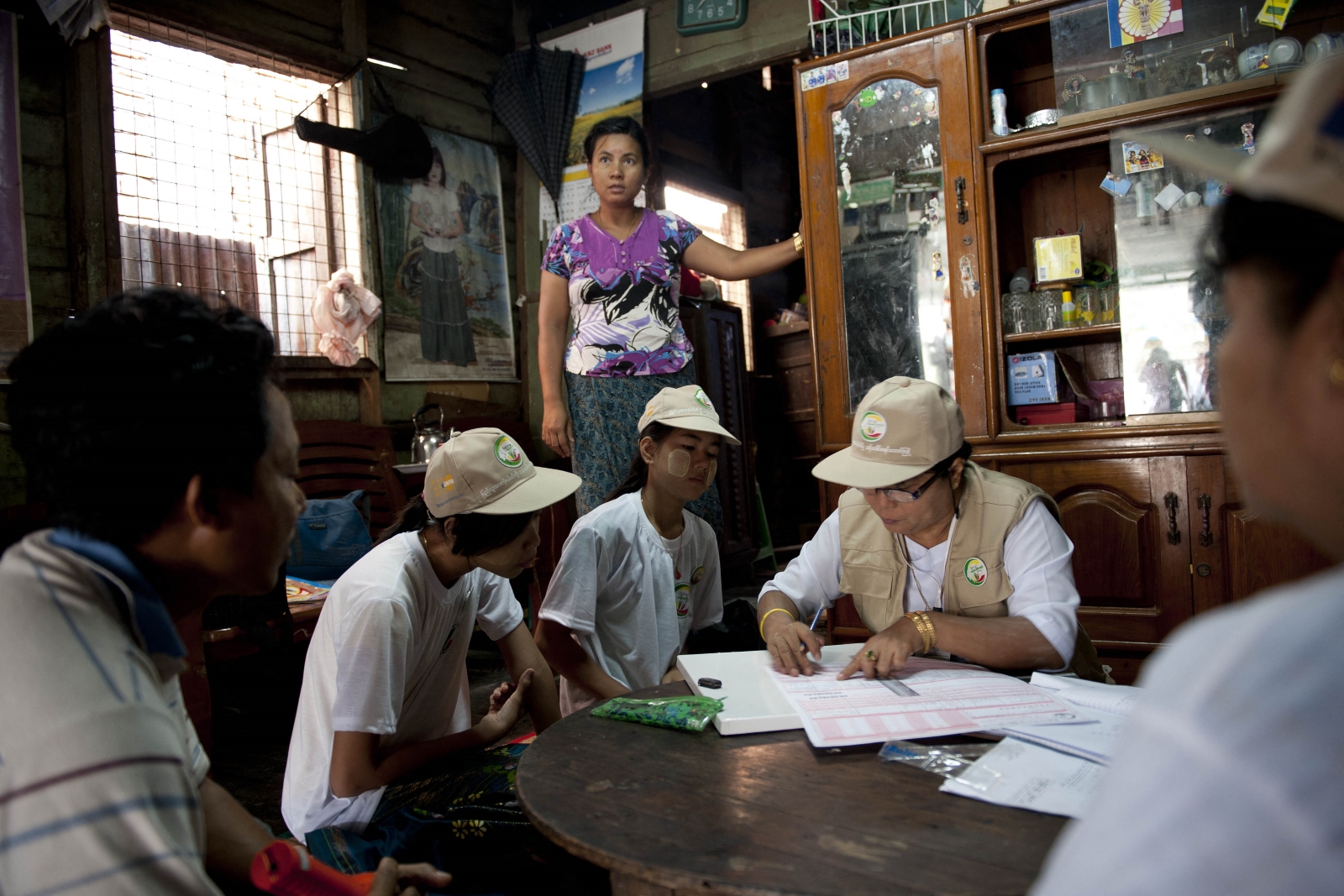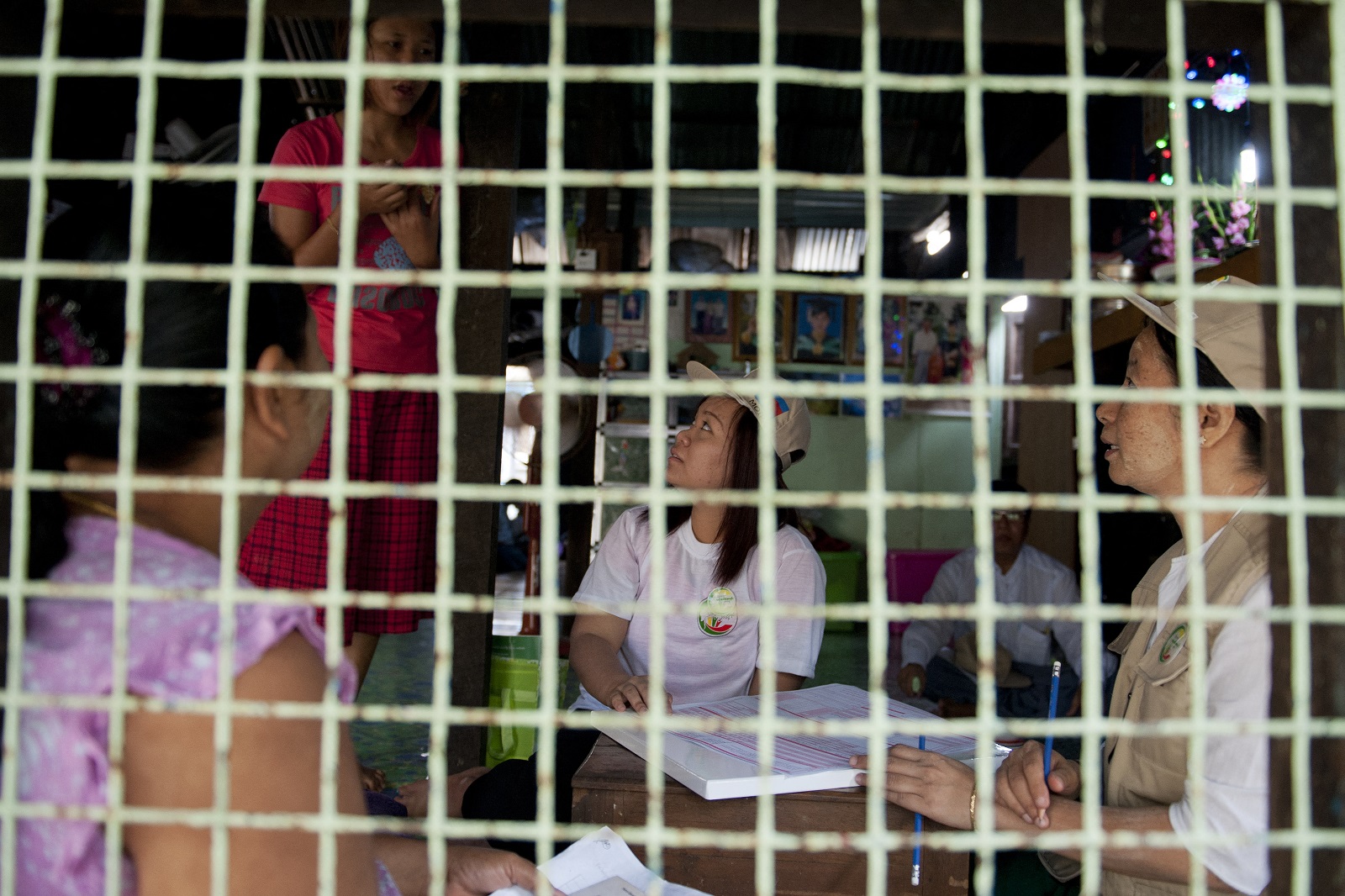USDP candidate U Wai Lwin attempted to woo voters with calls for gradual change during a recent campaign trip to Ayeyarwady Region.
Union Solidarity and Development Party heavyweight U Wai Lwin was on the defensive during a campaign trip to Ayeyarwady Region last week, firing verbal salvoes aimed at countering the slogans of the ruling party’s arch rival, the National League for Democracy.
The former defence minister, who is standing for the USDP in the Pyithu Hluttaw seat of Pobbathiri in Nay Pyi Taw, raised rhetorical questions about the nature of change during the trip to three townships, which included a campaign appearance in his hometown, Yegyi, on October 20.
“To change is good, but it is not good if it means moving into the next life because you used folk medicine for a quick fix,” he said, using a Myanmar expression for dying to warn against drastic change.
“In fact, if the change is too drastic for a five-year-old child, he may collapse,” U Wai Lwin said, alluding to the government’s term in office. “It should be a smooth and gradual change.”
The USDP had achieved significant change since it came to power after the 2010 election, said U Wai Lwin, a USDP central executive committee member who also made campaign appearances in Athoke and Nga Thaing Chaung townships.
“I’d like to explain about change,” he said. “You don’t have to indulge in fantasies about democratic reforms. You must know the difference between your aspirations and reality so the change will be smooth and acceptable. There are instances where democratic reforms lead to chaos and civil wars,” the former lieutenant-general said, citing the chaotic situation in Syria and Iraq.
U Wai Lwin then dipped into Western literature to emphasise his point and quoted the Russian novelist Leo Tolstoy: “People are always thinking about changing the world, but they forget to change themselves.”
Depending on the circumstances, it takes time to bring about change, said U Wai Lwin, adding that the democratisation of a country required total cooperation among people with intelligence and wisdom.
He described as obvious proof of the change taking place in Myanmar the October 15 signing of the national ceasefire accord that is to be followed by a political dialogue in which a key topic will be the creation of a federal state. “Previously, when we heard the word ‘federal,’ we all equated it with separatism, but now the Tatmadaw, the government and the ethnic armed groups have accepted the idea and decided to live together in the Union,” U Wai Lwin said in a speech in Athoke Township.
“It is a great achievement. People should know that this is real and fruitful change,” he said, without mentioning that the NCA was signed by eight of the 16 armed ethnic groups that had been involved in the ceasefire negotiations.
While trumpeting the NCA, U Wai Lwin stressed that the USDP could never accept change that might lead to the disintegration of the Union or challenge Myanmar’s territorial integrity.
In a speech at Yegyi, he addressed another of the NLD’s campaign messages urging voters to choose a party rather than a candidate.
“Some people say, look at the party, don’t look at the candidate, but voters should think seriously about what this means,” U Wai Lwin said, before illustrating his point with a reference to top English football team, Manchester United.
“If you replace all eleven players with second class players, how will Man U fare? So, when you are going to vote, you look at both the party and the candidate carefully. Only then will you choose the best.”
Although he criticised the NLD’s campaign slogans, U Wai Lwin avoided making any personal attacks on the party’s leader, Daw Aung San Suu Kyi, unlike some of his USDP colleagues when they campaigned in Ayeyarwady Region.
Many people had walked out of a joint USDP campaign appearance by Ayeyarwady Region Chief Minister U Thein Aung and another member of the party’s central executive committee, U Soe Naing, when they made personal attacks on Daw Aung San Suu Kyi.
“Members of the media ask me why I didn’t attack Daw Aung San Suu Kyi like my predecessors,” said U Wai Lwin. “I replied that I value my ethics. I’d rather accept failure in the election than make personal attack on others,” he said.
He added that if the USDP government, led by U Thein Sein, was elected to a second term it would accelerate reforms and seek a better future for the people.
U Wai Lwin had travelled to Ayeyarwady to support the campaigns of six USDP candidates, including three seeking election to the Pyithu Hluttaw, one to the Amyotha Hluttaw and another to the regional assembly.
The USDP is said to have about 120,000 members in the three townships, compared with a total registered NLD membership of about 40,000. A resident of Nga Thaing Chaung said past experience showed that election results depended more on voter’s preferred choices than on political party membership.







